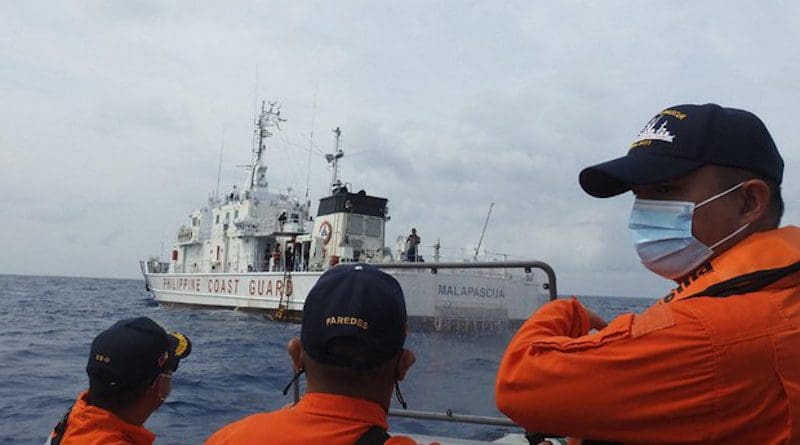Skepticism Over Effectiveness Of ASEAN-Beijing Hotline For South China Sea – Analysis
By BenarNews
By Tria Dianti
China and Southeast Asian nations may test a crisis hotline in the South China Sea this year to prevent accidental clashes from escalating into conflict, but analysts are questioning its effectiveness amid ongoing tensions in the strategic waterway.
A senior official at Indonesia’s Ministry of Foreign Affairs revealed the plan to reporters on Friday after officials from the Association of Southeast Asian Nations (ASEAN) and China met in Jakarta to discuss a code of conduct in the South China Sea, a flash point of geopolitical rivalry and maritime disputes.
“What is most important is incident management,” said Sidharto Suryodipuro, the ministry’s director general of ASEAN cooperation. “One of the things we may be able to do this year is … to do some kind of an exercise regarding the hotline.”
Collin Koh, an analyst based in Singapore, called the plan to test out the hotline “nothing more than a symbolic PR exercise.”
The hotline was established in 2016 as part of a joint statement on applying the Code for Unplanned Encounters at Sea, or CUES, a set of protocols for naval vessels and aircraft to communicate with one another and avoid collisions. The statement also called for more confidence-building measures and practical cooperation between ASEAN and China.
But progress on its implementation has been slow amid rising tensions and competing interests in the South China Sea, where about a third of global shipping passes through and where rich fishing grounds and potential oil and gas reserves are located.
Koh, a fellow at the S. Rajaratnam School of International Studies (RSIS) in Singapore, questioned the usefulness of the hotline.
“The hotline won’t have any effect whatsoever on certain parties’ behaviors in the South China Sea,” he told BenarNews.
“To be blunt, the parties can have the hotline but China in particular won’t be expected to roll back on its coercive behavior against its Southeast Asian rivals in the South China Sea.”
The planned hotline exercise comes as ASEAN and China are also working to finalize a long-awaited code of conduct for the South China Sea, a document that would set rules and norms for behavior and cooperation in the disputed waters.
The negotiations, which began in 2002, resumed in Jakarta last week after being delayed by the coronavirus pandemic.
On Friday, Sidharto said that Indonesia and other ASEAN members wanted a code of conduct for the sea to be “effective, substantive and actionable.”
In recent years, tensions have risen as China has asserted its sovereignty over most parts of the waterway by building artificial islands housing military facilities, deploying coast guard ships and enforcing fishing bans, prompting protests from other claimants as well as from Washington.
This year’s ASEAN chair, Indonesia, hopes to use its influence as the largest nation in Southeast Asia to expedite a successful outcome. The talks that ended on March 8 were the first round of negotiations this year after a meeting in Cambodia in October 2022.
Muhammad Arif, an international relations lecturer at the University of Indonesia, expressed doubts about the hotline’s ability to de-escalate tensions.
“As far as being a symbolic gesture and an attempt to come up with a new approach, I think it’s a positive development,” he said. “But the problem is not with the absence of means of communication but the willingness to communicate.”

